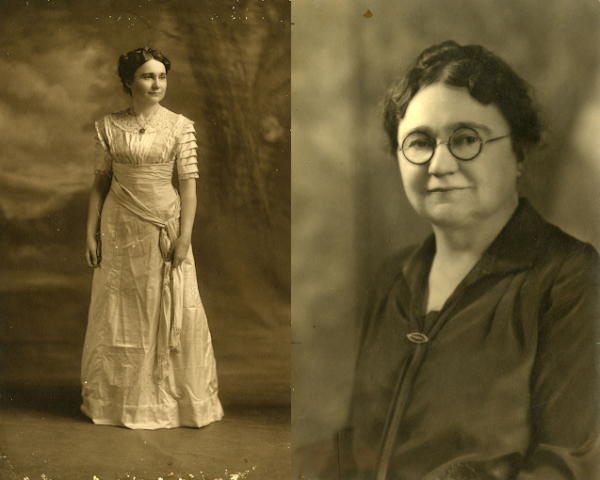ECAR welcomes new refugees and trainees
18 trainees. Five refugees. One campus.
It’s been a busy week for Every Campus a Refuge to say the least.
On Saturday, Sept. 23, 18 students, staff members, faculty and alumni participated in a training session to become volunteers for the program. And Tuesday, Sept. 26 marked the arrival of yet another family finding refuge on Guilford College’s campus.
Founded by Associate Professor of English Diya Abdo, ECAR is an initiative dedicated to aiding refugees during their resettlement by hosting them at Guilford and then supporting their transition into the greater community. Since its formation in 2015, ECAR has spread to six other college campuses. Guilford alone has hosted 27 people with Tuesday’s addition bringing the total to 33.
“I was inspired by Pope Francis’ call on every parish in Europe to host a refugee family, by Guilford’s Quaker history, tradition and testimonies, and by my own cultural, religious and personal background,” Abdo said in an email interview.
ECAR’s program coordinator and Guilford College alum Hali Kohls ‘15 hosted the training event on Saturday afternoon. During the two-hour orientation, Kohls gave a rundown of ECAR’s process, general procedures, volunteer tasks, opportunities and addressed the discomfort surrounding the conversation of immigration and refugees in the U.S.
Kohls discussed the interpersonal experience of welcoming refugees with self-awareness and openness.
“(We’re all) learning together. It’s a culture shock for everyone,” Kohls said.
“Greensboro’s refugee population includes people from Bhutan, Burma, Iraq, the Congo, Ethiopia. We have a lot of immigrants and refugees coming in…it’s one of the reasons we’re called a ‘Gate City’,” said Kohls.
ECAR works together with resettlement agency Church World Service of Greensboro to establish a smooth transition for refugees. Prior to Saturday’s event, CWS has led training sessions for ECAR volunteers. This was the first training session hosted by ECAR staff.
ECAR’s philosophy and directive of bridging gaps was reflected in the group of trainees that commenced on Saturday afternoon. The 18 participants ranged from first-years to CCE students with majors in varying fields, staff members and professors and even alums returning for the cause.
“I see this as a way to build bridges,” said first-year Amy Mejia.
Mejia attended the training event and explained why she felt a program like ECAR is important to hold up now more than ever.
“We have a lot of dichotomy right now in our country … a lot of lack of understanding. When you meet someone, it becomes very personal … you hear their story rather than hear the statistics of the immigrant population. While they both hold value, I appreciate the story more,” Mejia said.
With the arrival of a family on Tuesday, the newest trained volunteers can expect to be busy. Transports to doctors’ appointments, organization of donations and community outreach are just a few of the myriad of ways to help out.
“I love to volunteer and help…especially with immigrants,” said first-year Leena Nahhas.
Nahhas moved to Raleigh, North Carolina from Palestine just a few months ago. She credited her own family’s experiences with immigration as a driving force for her interest in ECAR.
“In a way because I understand the suffering of refugees as a person whose family had to flee their country a long time ago. (It was because of the) 1948 war in Palestine,” said Nahhas.
But the refugee crisis is not something of the past. With the Trump Administration’s recent decision to end DACA, addressing displacement in the U.S. is more critical than ever.
“With the political situation right now, any help that can be provided actually matters … can actually provide some hope for people who are facing this problem around the world,” Nahhas said.
Admissions counselor and Guilford College alum A.C. Canup ’15 noted the same concern of current political and social tension as incentive to join the ECAR team.
“I work in admissions and talk about this program to (give) perspective to students and parents. I figured I should actually get involved instead of just talk about it…There are (all) kinds of horrible things going on right now and I want to do something about it. ECAR was right in front of me, so when the invitation to be trained as a volunteer popped up, I jumped in.”
Guilford College nurtures ECAR not only as a physical space, but as a community that instills the desire to reach beyond cultural norms to listen, to help and to host.
“It’s allowed us to continue using our resources in ways that align with our values and to educate our students and communities on refugee resettlement in Greensboro,” Abdo said of using Guilford College as a foundation for ECAR.
Canup echoed this perception of the College.
“I think the Guilford community understands that we are helping to fill a need in our world right now. It’s just the right thing to do,” said Canup.








